Managing data for your small business might not sound thrilling, but it’s a game-changer. With technology evolving every day, staying on top of your data can make or break your business. Whether it’s organizing files, securing customer information, or just keeping things tidy for tax season, good data habits save time and headaches. Plus, with 2025 around the corner, there’s no better time to step up your data game.
Key Takeaways
- Switching to digital tools can simplify your workflow and reduce errors.
- Organizing your data properly makes it easier to find what you need, when you need it.
- Regularly backing up your data protects you from unexpected losses.
Mastering the Art of Small Business Data Management
Why Going Digital is a Game-Changer
Let’s face it—if you’re still buried in paper receipts and sticky notes, it’s time to step into the digital world. Digital tools can transform your business from a chaotic mess into a well-oiled machine. The best part? You’ll save time and reduce errors. Imagine syncing your bank transactions automatically, or setting up reminders for bills, all with a few clicks. Tools like cloud-based accounting software make this possible. Plus, going digital isn’t just about convenience; it’s about staying competitive in a world where everyone else is already online.
The Perks of Cloud-Based Solutions
Cloud-based systems are like the superhero of small business data management. They’re flexible, secure, and accessible from anywhere. Need to check your inventory while sipping coffee at your favorite café? No problem. The cloud has got your back. Here are a few perks:
- Automatic Updates: No more manual backups or outdated software.
- Collaboration: Your team can access the same data in real-time, whether they’re in the office or working remotely.
- Disaster Recovery: If your laptop decides to quit on you, your data is still safe in the cloud.
So, if you’re not already on the cloud, what are you waiting for? It’s like having a safety net for your business.
Avoiding the Spreadsheet Trap
Spreadsheets are great—until they’re not. They’re easy to mess up, hard to share, and let’s be honest, not exactly built for scalability. Here’s why you should think beyond spreadsheets:
- Human Errors: One typo can throw off your entire balance sheet.
- Version Control Issues: Ever tried collaborating on a spreadsheet and ended up with five different versions? Yeah, not fun.
- Limited Features: Spreadsheets can’t handle advanced analytics or integrate with other tools.
Instead, consider investing in a Master Data Management tool. These tools are designed to handle complex data needs and can save you a ton of headaches down the road.
Pro Tip: The sooner you ditch spreadsheets for a more robust solution, the sooner you’ll sleep better at night.
Organizing Your Data Like a Pro
The Magic of Folder Structures
Picture this: You’re hunting for that one critical file, and it’s hidden in a digital jungle of chaos. Sound familiar? A well-thought-out folder structure is like GPS for your data. Start with broad categories—think "Invoices," "Marketing," and "Operations." Then, drill down into subfolders like "2025" or "Q1." Consistency is key here; stick to a naming convention that makes sense to you and your team. Need to find last year’s budget? Boom, it’s right there.
Here’s a simple example to get you started:
| Main Folder | Subfolder 1 | Subfolder 2 |
|---|---|---|
| Invoices | 2025 | Paid / Unpaid |
| Marketing | Campaigns | Social Media Ads |
| Operations | Policies | Employee Manuals |
Trust me, future you will thank you for this.
Paper vs. Paperless: The Ultimate Showdown
Ah, the age-old debate: paper or digital? Paper lovers will argue it’s tangible and doesn’t crash, while the paperless crowd will say, "Uh, ever heard of a flood or fire?" Going digital is a no-brainer in 2025. Cloud storage solutions like Google Drive or OneDrive let you access your files anywhere—plus, they’re way easier to share. But hey, if you’re still clinging to paper, at least scan those documents and back them up online. Pro tip: Use a scanner app on your phone. It’s faster than you think.
Backing Up: Because Murphy’s Law Exists
Listen, if you think "it’ll never happen to me," you’re tempting fate. Hard drives fail. Phones get lost. Cloud accounts get hacked. Backups aren’t optional—they’re survival tools. Here’s a quick backup checklist:
- Local Backup: Use an external hard drive.
- Cloud Backup: Services like Dropbox or iCloud are lifesavers.
- Automate It: Set up automatic backups so you don’t have to think about it.
"Data loss isn’t a matter of if—it’s a matter of when." Don’t be that person frantically Googling "how to recover lost files" at 2 a.m.
With these strategies, you’ll be less "Where’s that file?" and more "I’ve got this."
Staying Ahead with Smart Data Practices

The Importance of Regular Reconciliation
Let’s be real—reconciling your accounts is about as exciting as watching paint dry, but it’s absolutely non-negotiable. Ideally, you should aim for weekly check-ins with your books. Why? Because catching a $10 mistake now is way easier than unraveling a $1,000 disaster at the end of the year.
Here’s a quick checklist for smoother reconciliations:
- Match every transaction in your books with your bank statements.
- Investigate any discrepancies immediately, no matter how small.
- Keep your records updated in real-time with accounting software.
Tax Time Tips You’ll Thank Yourself For
Ah, tax season—the ultimate stress test for small business owners. But it doesn’t have to be a nightmare. Start by putting away a percentage of your monthly earnings specifically for taxes. Think of it as your "anti-audit fund." Also, keep a calendar for deadlines, because missing one could cost you big time.
Pro tip: Organize your receipts digitally. A smartphone photo app paired with cloud storage can save you countless hours of hunting for that one gas receipt from July.
Keeping Personal and Business Finances Separate
If you’re still mixing personal and business expenses, stop. Like, right now. Open a separate business bank account and keep it strictly for company transactions. Not only does this save you a ton of headaches, but it also makes your financial reports much cleaner.
Here’s why separation is key:
- It simplifies bookkeeping and tax preparation.
- It protects your personal assets in case of legal trouble.
- It makes you look more professional to clients and investors.
Think of your business finances like a roommate. You wouldn’t share a toothbrush, so why share a bank account?
Future-Proofing Your Small Business Data

Scalable Systems for Growing Businesses
Let’s face it—your business isn’t staying small forever (fingers crossed!). That’s why you need systems that can grow with you. Scalability isn’t just a buzzword; it’s your future lifeline. Look for software and tools that can handle increased data, users, and complexity without breaking a sweat—or your budget. Think of it like buying a stretchy waistband for your business—it grows with you, no awkward pinching.
Here’s a quick checklist for scalable solutions:
- Does it offer tiered pricing so you’re not paying for features you don’t need yet?
- Can it integrate with other tools you might add later?
- Is the customer support equipped to handle your growing needs?
Pro tip: Selecting a data storage vendor with scalability in mind can save you from headaches down the road.
Training Your Team for Data Success
You’ve got the tools, but does your team know how to use them? Training isn’t just a one-and-done deal—it’s an ongoing investment. Keep your team sharp by:
- Hosting regular workshops or training sessions.
- Encouraging them to stay updated on the latest tech trends.
- Setting up an easy-to-access cheat sheet or resource hub.
Remember, even the best software is useless if no one knows how to use it. So, make training a priority—it’s like teaching everyone to fish instead of handing out fish tacos.
Security Measures That Build Trust
Nothing kills trust faster than a data breach. Protecting your data is protecting your reputation. Start with the basics: strong passwords, two-factor authentication, and regular security audits. Then, level up with encrypted storage and access controls.
Here’s a simple table to break it down:
| Security Measure | Why It Matters |
|---|---|
| Strong Passwords | Keeps out the easy hackers |
| Two-Factor Authentication | Adds an extra layer of safety |
| Regular Security Audits | Fixes weak spots proactively |
A secure business is a trustworthy business, and that’s something your customers will notice (and appreciate).
Wrapping It Up: Data Management Done Right
Alright, so here’s the deal. Managing data for your small business in 2025 isn’t just about keeping things neat and tidy—it’s about staying ahead of the game. Whether you’re snapping pics of receipts, syncing your bank accounts to the cloud, or finally ditching that shoebox full of crumpled invoices, every little step counts. The tools are out there, and trust me, they’re way easier to use than you think. Start small, stay consistent, and don’t be afraid to ask for help when you need it. Because at the end of the day, good data management isn’t just smart—it’s your secret weapon for running a business that thrives. So, go on, get your data ducks in a row and show 2025 who’s boss!
Frequently Asked Questions
Why should small businesses use cloud-based solutions?
Cloud-based solutions let small businesses store their data securely online, making it easy to access from anywhere. They also help with automatic updates and backups, reducing the risk of losing important information.
How can I keep personal and business finances separate?
You can open a dedicated bank account for your business. This helps you track expenses and income clearly, making tax time and bookkeeping much easier.
What’s the best way to back up my business data?
The best way is to use both cloud storage and an external hard drive. This ensures your data is safe even if one backup method fails.







